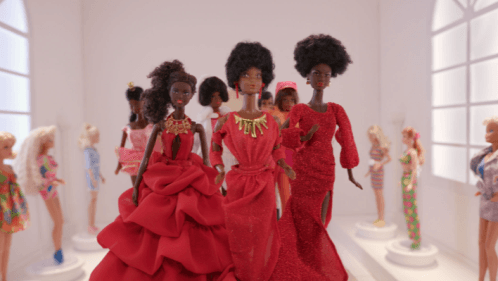
Black Barbie

Black Barbie
USA
A rousing counter-argument to Barbiemania, told through the insights and experiences of Beulah Mae Mitchell, who spent 45 years working at Mattel.
Love her or hate her, almost everyone has a Barbie story. For filmmaker Lagueria Davis, it all started with her 83-year old Aunt Beulah Mae and a seemingly simple question, “Why not make a Barbie that looks like me?”
Upon Mattel’s 1980 release of Black Barbie, the film turns to the intergenerational impact the doll had. Discussing how the absence of black images in the “social mirror” left Black girls with little other than White subjects for self-reflection and self-projection. Beulah Mae Mitchell and other Black women in the film talk about their own, complex, varied experience of not seeing themselves represented, and how Black Barbie’s transformative arrival affected them personally.
Australian Premiere
Love her or hate her, almost everyone has a Barbie story. For filmmaker Lagueria Davis, it all started with her 83-year old Aunt Beulah Mae and a seemingly simple question, “Why not make a Barbie that looks like me?”
Upon Mattel’s 1980 release of Black Barbie, the film turns to the intergenerational impact the doll had. Discussing how the absence of black images in the “social mirror” left Black girls with little other than White subjects for self-reflection and self-projection. Beulah Mae Mitchell and other Black women in the film talk about their own, complex, varied experience of not seeing themselves represented, and how Black Barbie’s transformative arrival affected them personally.
Australian Premiere
Connect
Related Sessions
Black Barbie
FRI, OCT 20, 3:40 PM
Screen Festival
A rousing counter-argument to Barbiemania, told through the insights and experiences of Beulah Mae Mitchell, who spent 45 years working at Mattel.
Love her or hate her, almost everyone has a Barbie story. For filmmaker Lagueria Davis, it all started with her 83-year old Aunt Beulah Mae and a seemingly simple question, “Why not make a Barbie that looks like me?”
Upon Mattel’s 1980 release of Black Barbie, the film turns to the intergenerational impact the doll had. Discussing how the absence of black images in the “social mirror” left Black girls with little other than White subjects for self-reflection and self-projection. Beulah Mae Mitchell and other Black women in the film talk about their own, complex, varied experience of not seeing themselves represented, and how Black Barbie’s transformative arrival affected them personally.
Australian Premiere
Black Barbie
SAT, OCT 21, 6:45 PM
Screen Festival
A rousing counter-argument to Barbiemania, told through the insights and experiences of Beulah Mae Mitchell, who spent 45 years working at Mattel.
Love her or hate her, almost everyone has a Barbie story. For filmmaker Lagueria Davis, it all started with her 83-year old Aunt Beulah Mae and a seemingly simple question, “Why not make a Barbie that looks like me?”
Upon Mattel’s 1980 release of Black Barbie, the film turns to the intergenerational impact the doll had. Discussing how the absence of black images in the “social mirror” left Black girls with little other than White subjects for self-reflection and self-projection. Beulah Mae Mitchell and other Black women in the film talk about their own, complex, varied experience of not seeing themselves represented, and how Black Barbie’s transformative arrival affected them personally.
Australian Premiere
